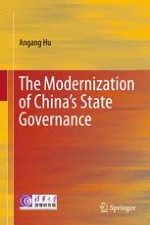2017 | OriginalPaper | Buchkapitel
4. The Relationship Between the Government and the Market
verfasst von : Angang Hu, Xiao Tang, Zhusong Yang, Yilong Yan
Erschienen in: The Modernization of China’s State Governance
Verlag: Springer Singapore
Aktivieren Sie unsere intelligente Suche, um passende Fachinhalte oder Patente zu finden.
Wählen Sie Textabschnitte aus um mit Künstlicher Intelligenz passenden Patente zu finden. powered by
Markieren Sie Textabschnitte, um KI-gestützt weitere passende Inhalte zu finden. powered by
